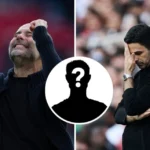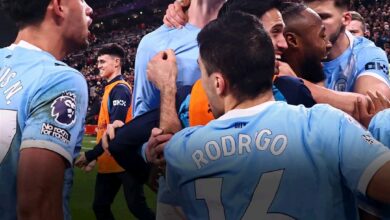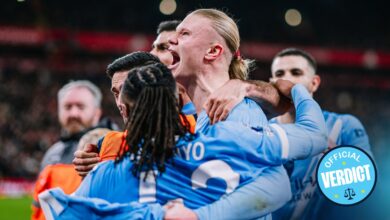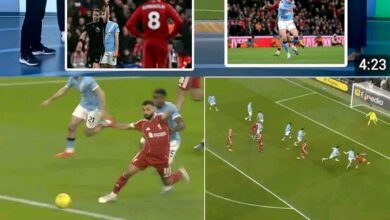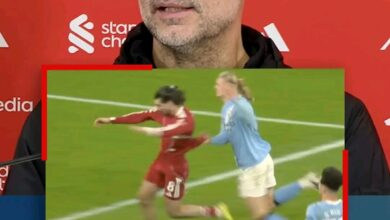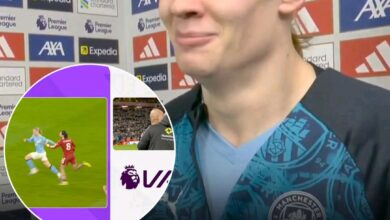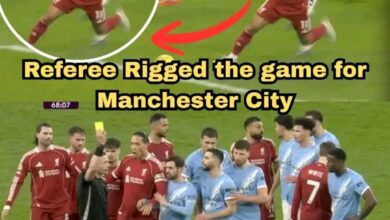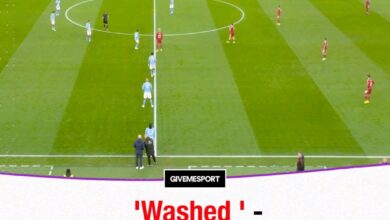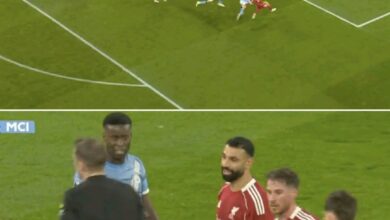He’s now expected to wave goodbye to Man City in the coming weeks
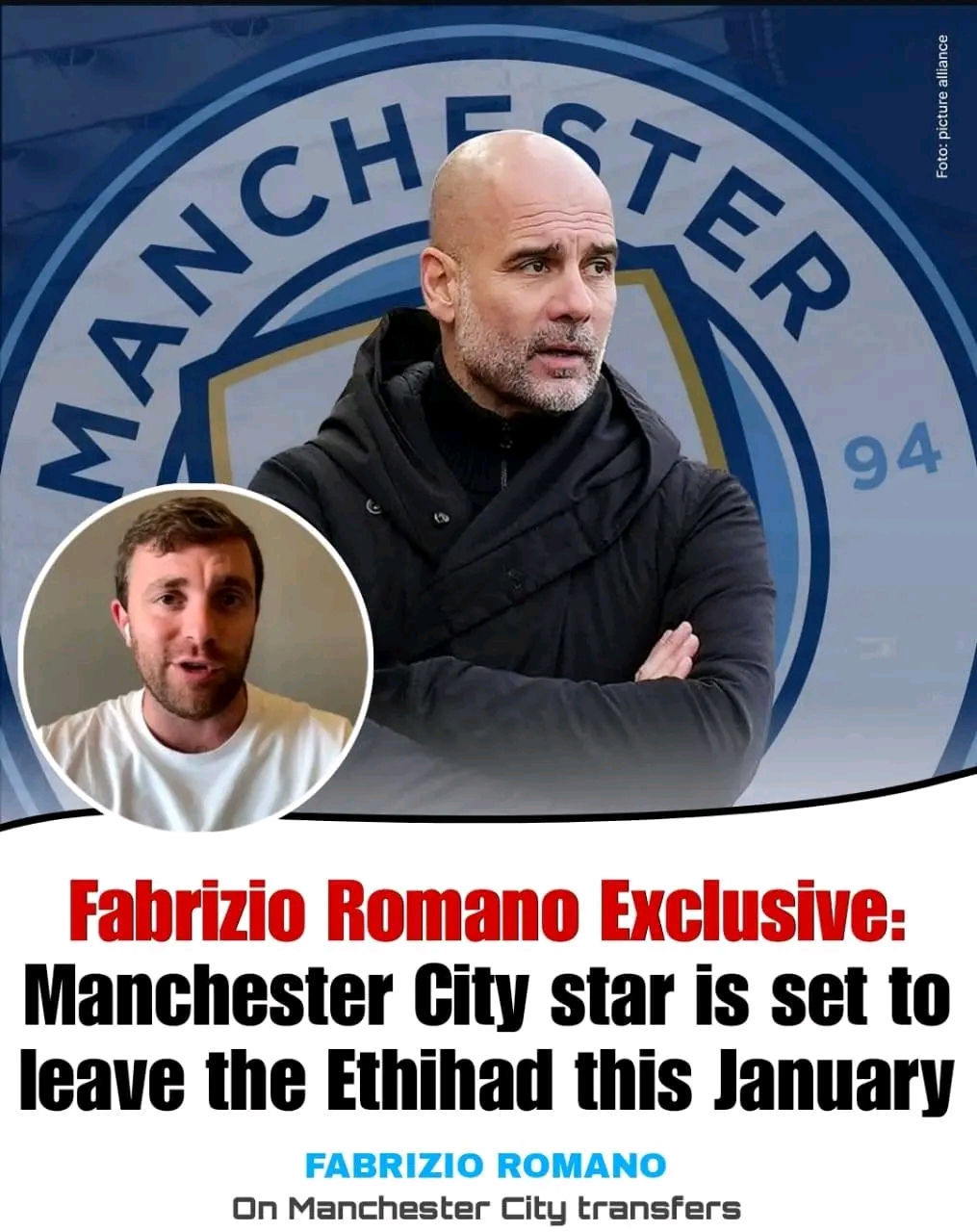
When Manchester City announced the signing of Vitor Reis in January, many fans believed they had just witnessed the birth of another Pep Guardiola masterstroke. The young Brazilian defender, only a teenager at the time, arrived from Palmeiras for nearly £30 million — a huge price for someone who hadn’t even turned twenty. The talk around the Etihad was that this boy was different, calm on the ball, brave in the air, and fearless in his tackles. He was described as “the next Marquinhos,” a defender built for the modern game. But now, just months later, that same Vitor Reis is packing his bags and heading out on loan to Spain.
It is a twist few expected, and the story of his sudden exit says a lot about the changing world inside Manchester City. Because while fans often see the glamour of Pep’s City — the trophies, the goals, the smiles — behind those walls, there’s also ruthless competition, silent pressure, and a constant reminder that no one, not even a rising star, is safe.
When Vitor first landed in Manchester, he came with that bright South American energy. He smiled in every training photo, and his English was improving fast. Guardiola spoke highly of him during a press conference, saying he was “a talented boy who will learn the City way.” Everyone thought it was just a matter of time before he broke into the team. But football at this level is never that simple. City is not a place where patience lives for long. The team is full of world-class defenders: Ruben Dias, John Stones, Nathan Ake, Josko Gvardiol — men who have fought their way to the top. For a young player to push through that wall, it takes more than potential; it takes presence, courage, and sometimes a little luck.
Vitor played three matches during his first season. He looked sharp, strong, and calm, especially during his Club World Cup debut. But soon after, the excitement began to fade. He was left out of the Champions League squad, a decision that shocked many Brazilian fans who followed his journey. For them, Vitor was supposed to be the next big export — another Brazilian who would conquer Europe. Instead, he found himself watching games from the bench, or worse, from the stands.
City’s staff still believed in his future, but Guardiola’s message was clear: “If you’re not ready to fight for your place, you go out and learn.” That’s how Manchester City operates. No comfort zone, no easy minutes. You earn your shirt or you loan your talent elsewhere.
So the club made the call — Vitor Reis to Girona for a season. It might look like a small move, but for Vitor, it’s everything. Girona, the sister club of City, has become a second home for many of Pep’s young projects. It’s the place where they test their strength, where they either rise or fade. The likes of Yan Couto, Pablo Maffeo, and Aleix Garcia all passed through Girona’s gates before finding their paths. For Vitor, this is the beginning of his test.
He will now play in La Liga, against Real Madrid, Barcelona, and Atletico — stadiums filled with fire and fear. Every mistake will be punished, every tackle will be watched. But perhaps this is what he needs. Because some players don’t grow in luxury; they grow in chaos
As for City, this move says a lot about the silent rebuild that Guardiola is crafting behind the scenes. Many only see the front — the winning team, the trophies, the smiles. But underneath that success, there’s constant reshaping. Kevin De Bruyne is gone. Kyle Walker has left. Young faces like Maximo Perrone and Yan Couto have gone out again. Even Juma Bah has been sent on loan. It’s a transformation, one that feels like the start of a new era.
Pep has always been ruthless when it comes to refreshing his squad. It doesn’t matter how young, how talented, or how loved you are — if the system needs changing, you’re part of that shift. He once said in an interview, “Football is about evolution. If you don’t evolve, you die.” For Vitor Reis, this is his evolution moment. He must go to Girona, prove he belongs in Europe, and come back not as a boy full of promise, but as a man ready to fight.
Alongside Vitor’s exit, another young defender has also packed his bags — Max Alleyne, the 20-year-old academy product. He has joined Watford on loan, and his story mirrors Vitor’s in many ways. Max has been one of the standout players in the academy. Fast, intelligent, and good with the ball. But like many before him, breaking into Pep’s starting eleven is like climbing a mountain barefoot.
Watford’s manager, Paulo Pezzolano, spoke about Max with real admiration. “Seeing Max play,” he said, “you can tell Manchester City’s academy is doing something right. Now it’s our job to help him grow and get the best out of him.” These words might sound simple, but they carry weight. Watford is not a glamorous destination, but it’s a real one. It’s a place where players get tested by the raw side of English football — the cold nights, the physical battles, the endless pressure. If Max can survive there, he can survive anywhere.
Together, Vitor and Max represent the next generation of Manchester City’s experiment — a system where the club buys, trains, loans, and builds until the perfect product emerges. It’s a strategy that has worked time and time again. Think of the players who once left City only to return stronger, or those who became stars elsewhere because City believed in long-term growth.
But while the club continues to move pieces around, questions remain among the fans. How many more will leave before City’s next big signing arrives? Will Guardiola’s ruthless rebuild shake the team’s core? And what happens if one of these loaned-out players becomes a star elsewhere? These are questions that football never answers quickly.
Meanwhile, whispers are growing around Jack Grealish. His name has become part of the transfer storm. According to reports, Everton are chasing him, and while a loan seems the more likely route, the twist is that Grealish himself reportedly prefers Tottenham. For a player once considered one of England’s most creative attackers, it’s a strange time. His minutes at City have been limited, his confidence seems shaken, and now his future is floating between two clubs — one fighting to rebuild and another aiming to rise again.
Tottenham’s Europa League success last season has given them momentum, and Grealish sees it as a chance to rebuild his career, to fight his way back into the England squad ahead of the World Cup. Whether City will let him go is another story, but the truth is clear: change is happening fast at the Etihad.
For fans, these moves might look like ordinary business, but behind each decision, there’s emotion. There’s a young player saying goodbye to teammates. There’s a dream being delayed. There’s a coach who has to make the hard call. Pep Guardiola once said that managing City is not just about winning — it’s about building something that lasts. That’s why every departure, every loan, every sale is part of a bigger picture.
In a way, Vitor Reis’s story is not a sad one. It’s the start of a footballer’s education. The bright lights of Manchester will fade for a while, replaced by the hot Spanish sun. Girona will test his hunger, his patience, and his belief. If he passes this test, he will return to City not as a project, but as proof of Pep’s faith in youth. And if he fails, football will still give him another door to open — because talent like his rarely disappears.
For now, City fans will watch from afar, keeping an eye on their loanee in Spain, hoping that each game brings him closer to the player he’s meant to become. And when he finally walks back through the Etihad tunnel, perhaps a year from now, they will remember this chapter — the quiet goodbye that started a louder comeback.
In Manchester, the cycle continues. Players come, players go. Legends leave, and new names rise. Guardiola’s eyes are already on the next move — the next evolution. But somewhere in Girona, a young Brazilian named Vitor Reis is working, sweating, dreaming, and believing that one day, his name will be called again.
Because at Manchester City, the dream never ends — it only pauses for a while.


